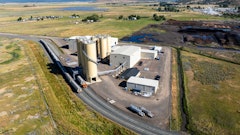
Minnesota saw an increase in construction deaths in 2010 from the previous year, a period when construction deaths nationally declined.
A report from the Associated General Contractors of America based on federal data found that construction deaths nationwide declined 10 percent between 2009 and 2010.
The report factors in the decline in construction activity, noting that a 40 percent drop in construction deaths between 2006 and 2010 outpaced a 31 percent decline in construction spending during that time.
In Minnesota, meanwhile, the nine construction fatalities in 2010 were up from seven in 2009, said James Honerman, communications director for the Minnesota Department of Labor and Industry.
However, those numbers include incidents that are outside of Minnesota OSHA's investigative jurisdiction, such as workers driving a load to a construction site, Honerman noted.
Moreover, the nine deaths in 2010 were down from 13 in 2008.
But Minnesota OSHA officials say one death is too many.
James Krueger, director of Minnesota OSHA compliance, said the state enforces safety standards with the goal of making sure "everyone gets home at night and is provided a safe and healthful workplace. Our goal is always zero. "
For all industries, Minnesota OSHA investigated 21 workplace deaths in 2009, 21 in 2010 and six in the first three and a half months of 2011, according to the latest data.
Falls and "crushed by" accidents, such as trench collapses, are among the most common causes of construction workplace injuries and fatalities, Krueger noted.
Just last month, in Brooklyn Park, a 31-year-old man was killed after the trench he was working in collapsed. And in January, a site preparation employee died after a wall collapsed on the worker, according to a Minnesota OSHA report.
According to a 2010 report from Minnesota OSHA, at least one employee in Minnesota dies each year in an excavation or trenching accident, and two separate cave-ins claimed the lives of two workers in April 2009 alone.
Krueger said state investigators are directed to identify problems with trenches and if they see a trench that is not properly dug, they issue citations on the spot. "We don't want to see another one," he said.
Phil Raines, vice president of public affairs for the Minnesota Associated Builders and Contractors, said workers, owners and contractors are "seeing the value of safety. "
ABC-Minnesota recently hired a safety expert to help members with various services, including safety audits, manuals and customized training, Raines noted.
Safety is an "essential part of your bid," and owners want to see that "you are going to work on the job safely," he said. "In the end, safety is money. ... I think that is a mentality that is finally starting to take hold. "
Glen Johnson, business manager for the Local 49 Operating Engineers in Minneapolis, said unions are heavily focused on safety.
"It has been ingrained in us for a long time," he said.
And contractors are buying into safety, in part, because their safety record is reflected in an insurance modification factor that considers workplace injuries, fatalities and workers' compensation claims, he said.
Contractors that score poorly won't even be able to work in a lot of places, he noted.
"I think it's part of the culture now," Johnson said. "If you don't have a good safety program, your workers' comp costs are out of this world, which makes you uncompetitive. "
Krueger noted Minnesota recently speeded up enforcement of tougher new fall protection standards on residential projects.
And through programs like CHASE (Construction Health and Safety Excellence), a partnership of AGC Minnesota and Minnesota OSHA, contractors are rewarded and recognized for going above and beyond OSHA safety requirements.
Many companies are cutting expenses amid the tough economic times. But Terry Hukriede, regional safety director for Adolfson & Peterson Construction, said he has not seen a reduced commitment to safety from the companies or clients he works with.
"No amount of training, coaching or enforcement will ever stop all individuals from making poor judgment calls, which can result in catastrophic results," he added. "While no fatalities in our industry are acceptable, we would be pretty naïve to assume we will stop all serious incidents from occurring. "



















